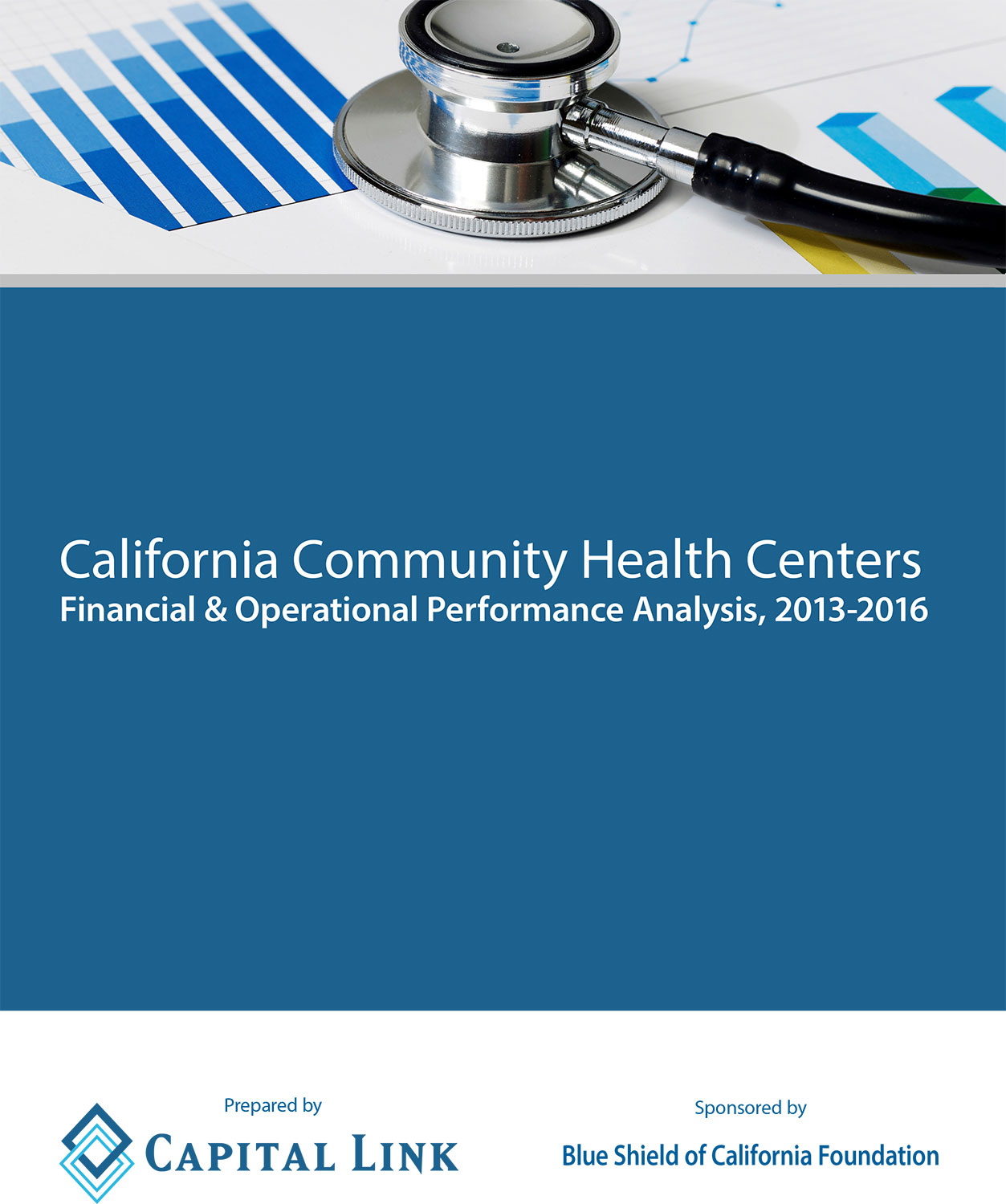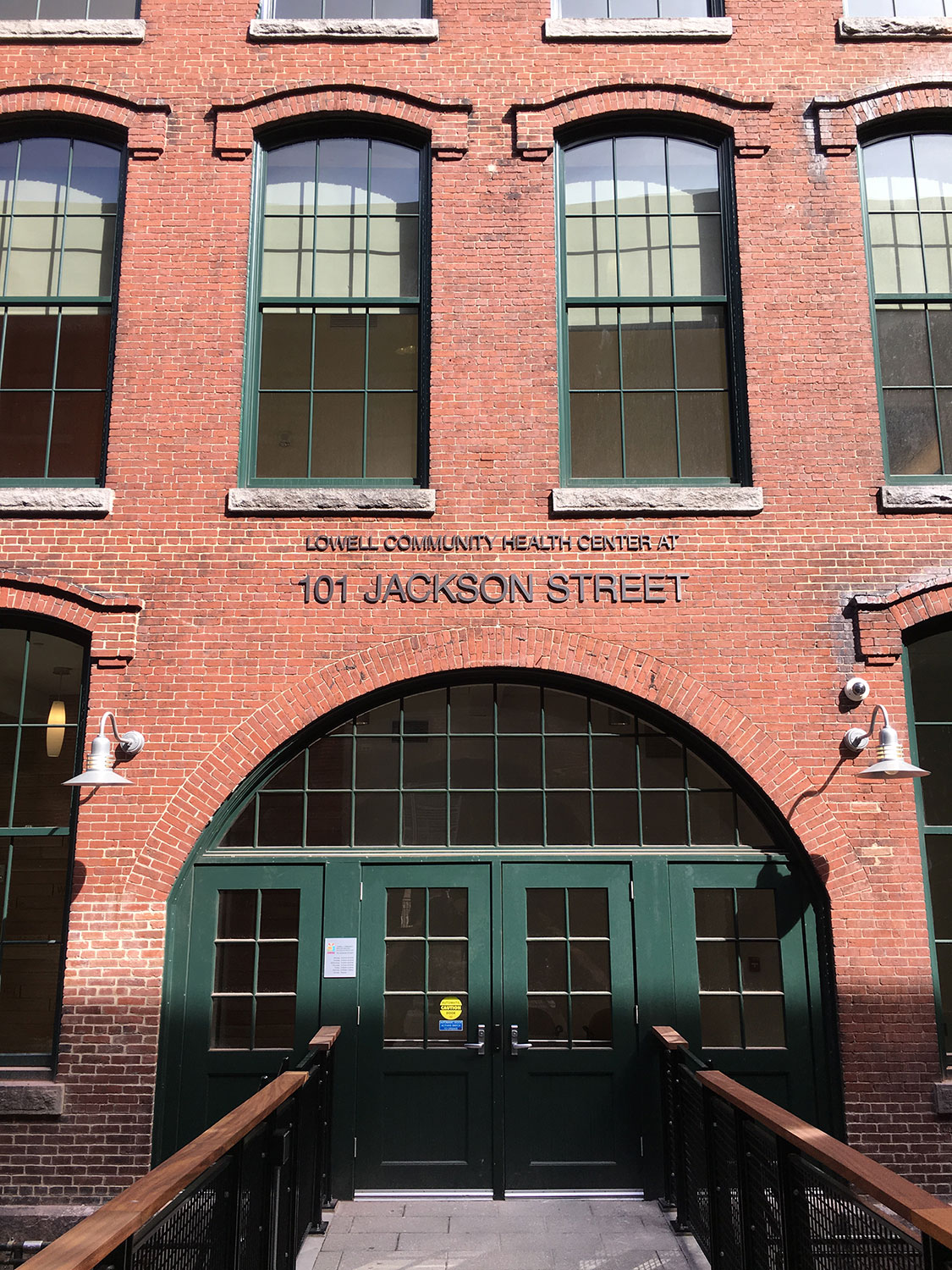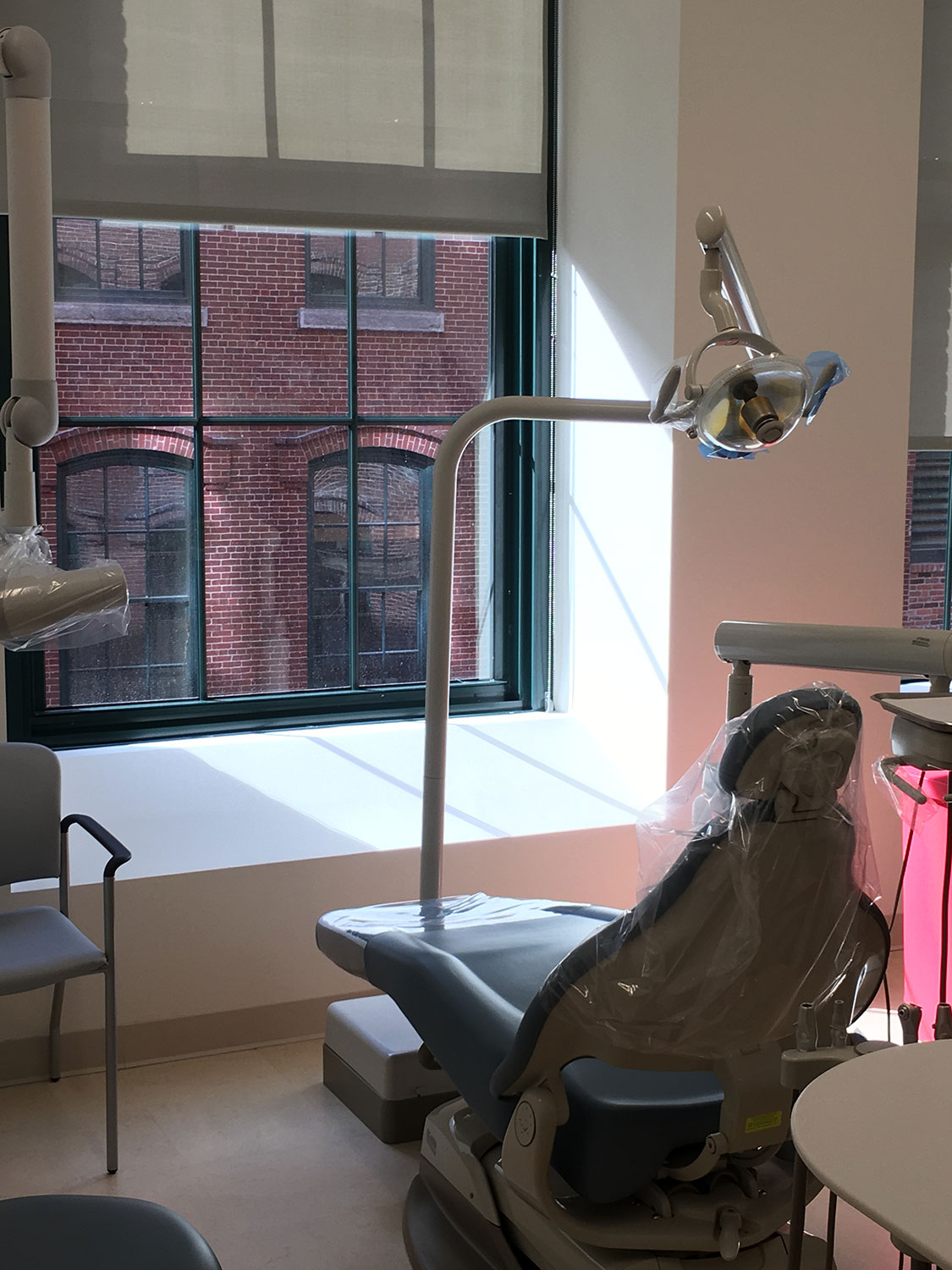
A Quarterly Resource Bulletin from Capital Link Spring 2018
Message from the CEO
While some pressure has been alleviated due to the recent FY18 spending package providing dedicated funding for health centers, the day-to-day challenges of providing effective and efficient primary care continues. Among the many priorities, health centers continue to devote significant resources to building a strong financial and operational foundation to support growth and long-term sustainability.
This issue of Capital Ink highlights a variety of resources, both by Capital Link and industry stakeholders, to assist health centers in improving performance and adapting operations in a rapidly changing environment. Processes for moving forward with primary care teams are described in the recording of our April HRSA-sponsored webinar, Optimizing Team Resources: Patient/Provider Scheduling and Panel Size. Also included are two new funding announcements: a grant opportunity for health centers pursuing New Markets Tax Credit financing in 2019 and 2020, and a HRSA supplemental funding opportunity for existing Health Center Program grantees for expenses related to the consequences of the recent hurricanes.
As always, we offer a federal news update, health center highlights, and a list of our upcoming trainings and presentations.
Warm Regards,
Allison Coleman, CEO
Federal Update
Below is a selection of recent health policy and regulatory news and information relevant to health centers and PCAs. For regular updates, subscribe to Capital Link’s blog, or access NACHC’s blogs and the HRSA’s health center webpage.
FY18 Spending Package Signed into Law
March 22, 2018 – Congress passed a $1.3 trillion FY18 spending package that will fund the federal government through September 30, 2018, and the legislation was signed into law by the President.
The bill provides health centers with:
-
$1.626 billion (+$135 million) in discretionary 330 grant funding to expand quality primary care access at health centers across the country. Combined with the mandatory Community Health Center Fund, this brings the total funding for health centers in FY18 to $5.4 billion;
-
At least $200 million in Section 330 grant dollars directed towards quality improvement or service expansion grants to support behavioral health, mental health, or substance use disorder services; and
-
$20 million to replenish the Health Center Loan Guarantee Program, which, together with reprogrammed funds from the current program, will leverage up to $889 million in private loan activity. A future issue of Capital Ink will focus on new opportunities available to health centers through the updated and modernized Loan Guarantee Program.
The spending package also supports health center providers and workforce initiatives, including:
-
An additional $105 million to the National Health Service Corps (NHSC) to expand the delivery of substance use disorder treatment services. This brings the total FY18 spending for NHSC to $415 million (mandatory and discretionary);
-
Expanding NHSC loan repayment eligibility to substance use disorder counselors;
-
$100 million for the White House’s new Rural Communities Opioid Response program;
-
$114.8 million to replenish the FTCA judgement fund to ensure coverage for individuals serving at health centers against claims; and
-
Creating a new $350 million Public Service Loan Forgiveness (PSLF) fund, to provide relief to PSLF applicants who are ineligible due to choosing the wrong student loan repayment option.
More details are available here.
Reauthorization of USDA Community Facilities Grant Program
The FY18 spending package also reauthorized the USDA Community Facilities grant program, which health centers are eligible for, and authorized $5 million to be spent for “innovative projects to address the opioid epidemic in rural communities.” Read the USDA’s press release here.
HRSA Welcomes Feedback on UDS Reporting
The Uniform Data System (UDS) Modernization Initiative aims to reduce reporting burden, improve data quality and usage, and better reflect Health Center Program services and outcomes. An exciting new opportunity is now available for continuous stakeholder feedback on the UDS, in addition to the traditional Federal Register Notice process. Submit questions or provide feedback via the UDS Modernization Initiative webpage.
New and Noteworthy
Grant Opportunity for Health Centers Seeking NMTC Financing in 2019 & 2020
If your health center has a capital project of $5 million or more that you intend to finance with New Markets Tax Credits (NMTC) between 2019 and 2020, now is the time to prepare for this complex but highly beneficial financing source.
To assist with the preparation process, Capital Link’s affiliate Community Health Center Capital Fund will award up to seven qualified health centers with grants of $20,000-$50,000 each to support technical assistance provided by Capital Link. To date, Capital Link has assisted health centers in raising more than $614 million through NMTC financing—more than half of all funds raised through the NMTC Program for FQHCs.
Don’t delay! Applications are due on Wednesday, May 30, 2018. Awardees will be announced in early June 2018.
For help in determining whether NMTC financing could be a good fit for your health center, please contact Jonathan Chapman, Capital Link’s Director of Community Health Center Advisory Services, at This email address is being protected from spambots. You need JavaScript enabled to view it..
Capital Funding Opportunity for Health Centers Affected by Recent Hurricaines
Health centers located in Alabama, Florida, Georgia, Louisiana, Puerto Rico, South Carolina, Texas, and the U.S. Virgin Islands that were impacted by Hurricanes Harvey, Irma, and/or Maria have the opportunity to apply for one-time support for minor alteration/renovation (A/R) and/or equipment costs. On May 14, HRSA announced the fiscal year 2018 Capital Assistance for Hurricane Response and Recovery Efforts (CARE) supplemental funding opportunity for existing Health Center Program award recipients. CARE funding will assist health centers with their disaster response and recovery activities, helping to ensure continuity of access to primary health care services in hurricane-impacted areas. Centers in AL, FL, GA, LA, SC, and TX can receive support of up to $280,000 while centers in PR and USVI can receive up to $560,000; work needs to be completed between September 1, 2018 and August 31, 2020. Applications are due in HRSA’s Electronic Handbooks by 5:00 pm ET on Thursday, June 14, 2018. Application resources are available on the CARE technical assistance website.
With support from HRSA, Capital Link prepared several resources to assist health centers affected by the recent hurricanes and wildfires in obtaining Federal Emergency Management Agency (FEMA) funding for damaged or destroyed facilities. Resources include a general disaster recovery resource, which every health center should add to its emergency preparedness plan, as well as one-page customized resources for each of the recent disaster declarations. These resources are available here on our website and will be updated as new information becomes available.
Resources
Webinar Offers Insights on Optimizing Team Resources Through Scheduling and Panel Size
Health centers continue to devote significant resources to the transition to a team-based model of primary care delivery. Optimizing Team Resources: Patient/Provider Scheduling and Panel Size, a highly-reviewed HRSA-sponsored webinar conducted in April by Capital Link, goes “back to the basics” to take a fresh look at techniques designed to expand capacity utilizing existing resources within a sustainable structure. From defining target outcomes to simplifying scheduling templates to aligning panel size, listen and learn a replicable process for moving forward with each of your primary care teams through what is often a contentious and divisive operational imperative. Includes questions and insights from your peers. Access a recording here. For a list of our upcoming webinars, click here.
New Report Measures Health Center Reporting of Social Determinants of Health Interventions
Capital Link recently released findings from a new analysis, sponsored by Blue Shield of California Foundation, to measure health center efforts to impact the non-clinical dimensions of the Social Determinants of Health (SDOH).
Capital Link studied SDOH interventions offered by health centers as reported to the HRSA’s Uniform Data System (UDS) during 2015 and 2016, the most recent data, in order to establish baselines for the size and scope of the programs in California and nationwide. The report includes recommendations for tracking and analyzing the data going forward.
|
Tracking Social Determinants of Health Interventions: Health Center Reporting of Non-Health Related Services of the Uniform Data System measures health center efforts to impact the non-clinical dimensions of the SDOH. Capital Link studied trends for SDOH interventions offered by health centers as reported to the HRSA’s UDS during 2015 and 2016 in order to establish a baseline of the size and scope of the programs in California and nationwide. Click here to download. |
Capital Link also released an updated financial and operational profile of California health centers, also sponsored by Blue Shield of California Foundation. This resource highlights multi-year trends in an effort to identify opportunities to improve performance and ensure financial sustainability, particularly given the changing nature of the health care landscape.
 |
California Community Health Centers: Financial & Operational Performance Analysis, 2013-2016 updates Capital Link’s statewide, multi-year financial and operational profile. Click here to download. |
New Resources from NACHC About Telehealth Best Practices and Barriers
NACHC has created two new resources about telehealth for health centers and PCAs, including best practices and barriers. The fact sheet and snapshot are available on the NACHC website. For more information and resources, check out the NACHC website, HRSA’s Telehealth website, and the Telehealth Resource Centers.
New Report Shows How Partnerships Help Small Health Centers Thrive
The California Health Care Foundation recently released Partnering to Succeed: How Small Health Centers Can Improve Care and Thrive Under Value-Based Payment. The report outlines seven partnership strategies than can help small health centers adapt in a rapidly changing health care environment. It also provides a framework centers can use to assess which partnership strategies are right for them. Access the report here.
Issue Brief on Importance of Health Centers in a Changing Environment
The Henry J. Kaiser Family Foundation recently released the issue brief, Community Health Centers: Growing Importance in a Changing Health Care System, which provides a snapshot of 2016 health center patients and operations. It also examines changes in patient access to care and utilization of services following the implementation of the coverage expansions through the Affordable Care Act (ACA) in 2014. Read the brief here.
Second Edition of NACHC 340B Manual Now Available
NACHC’s 340B Manual for Health Centers has been significantly updated and expanded to reflect recent developments and common questions. For example, there are new chapters on prices and savings, and on the C-suite role in 340B; and the discussions of the HRSA database, and interactions among 340B, 330, and Medicaid, are also updated and expanded. The second edition is available on MyNACHC. Organizations that purchased the first edition are eligible to receive the second edition for free; to access it, log onto MyNACHC using the same credentials used to purchase the first edition, and click “launch” on the 340B manual page. For more information about accessing the manual, please contact This email address is being protected from spambots. You need JavaScript enabled to view it..
Coming Soon:
-
Cost per Visit: Measuring Health Center Performance, developed by Capital Link and NACHC
-
Cost of Care Trends for Community Health Centers
-
Federally Qualified Health Centers Financial and Operational Performance Analysis, 2013-2016
Health Center Highlights
Capital Link regularly profiles health centers that have successfully completed their expansion plans. These health center stories are available on our website. Capital Link regularly profiles health centers that have successfully completed their expansion plans. The most recent addition is Shasta Community Health Center in California.
We want to congratulate Lowell Community Health Center on the grand opening of a newly renovated facility in Lowell, MA. The health center’s new $25 million, 165,000 square-foot facility will accommodate a dental and vision services, as well as expanded primary and behavioral health care. Capital Link assisted the health center in structuring and obtaining NMTC financing for this new facility; Capital Fund provided tax credits for the project. Congresswoman Niki Tsongas was a keynote speaker at the ribbon-cutting ceremony. Read more here.
 |
 |
 |
 |
Upcoming Events
Presentations
Capital Link regularly attends industry conferences to exhibit, conduct trainings, and present information related to capital development to health centers and primary care associations. Below are a few of our next scheduled events. All upcoming events are listed here on our website.
National Healthcare for the Homeless Annual Symposium
May 15-18, 2018
Minneapolis, MN
Health Center Boards: Directing with Data
May 20, 2018 10:00 AM
Presenters: Jonathan Chapman, Director of Community Health Center Advisory Services, Capital Link, and Heidi Nelson, Chief Executive Officer, Duffy Health Center
Northwest Regional PCA Spring Primary Care Association Conference
May 19-22, 2018
Portland, OR
Demonstrating the Value and Impact of Health Care for the Homeless Through Data Trends
May 16, 2018 8:30-10:00 AM
Presenter: Jonathan Chapman, Director of Community Health Center Advisory Services, Capital Link
NACHC Regional Training: Financial Operations Management, Level II (FOM II)
June 13-14, 2018
Kansas City, MO
Benchmarking and Analyzing Costs for Improving Operations
June 13, 2018 10:45 AM - 12:30 PM
Presenter: Susan Petrie, Chief Operations Officer, Capital Link
Webinars
Capital Link offers webinars designed to offer useful information for health centers on a wide range of topics. The webinars have no charge, but participation is limited. Access recordings of past webinars here.
Developing a Community Health Center Capital Project Plan and Budget - Part One
Wednesday, May 30, 2018 2-3 PM ET
Presented by: Jonathan Chapman, Director of Community Health Center Advisory Services, Capital Link
Before developing a complete capital project budget, health centers need to create a plan that accounts for all aspects of the project and attempts to eliminate unwelcome surprises. This session, the first of a two-part webinar series, will take a broad look at capital project planning activities that allow you to accurately determine the cost of a project so your health center knows how much funding you need to secure. We will discuss how to estimate service area demand, workforce needs, and space requirements so you can build a realistic budget. We will also describe how to calculate your debt capacity and measure financial feasibility.
Developing a Community Health Center Capital Project Plan and Budget - Part Two
Wednesday, June 20, 2018 2-3 PM ET
Presented by: Jonathan Chapman, Director of Community Health Center Advisory Services, Capital Link
Once your health center has developed a capital project plan, you are better able to plan how you are going to pay for your facility expansion or renovation. The second part of a two-part webinar series will dive deeper into how to determine your sources and uses of funds, the elements of a business plan, and an overview of the variety of capital project financing sources available to health centers, including New Markets Tax Credits. This session will also discuss how health centers can use scenario modeling to strategically manage their capital projects in a changing environment.
Capital Link will be participating in a webinar sponsored by California Primary Care Association (CPCA):
PACE: National Resources and Opportunities
Wednesday, June 13, 2018 1-2 p.m. PT
Presented by: Jason Patnosh, Associate Vice President, National Association of Community Health Centers; Dan Driscoll, Consultant, Galway Group; Allison Coleman, CEO, Capital Link; Robert J. Montanari, Senior Vice President, National Cooperative Bank
Register on CPCA’s website here.


